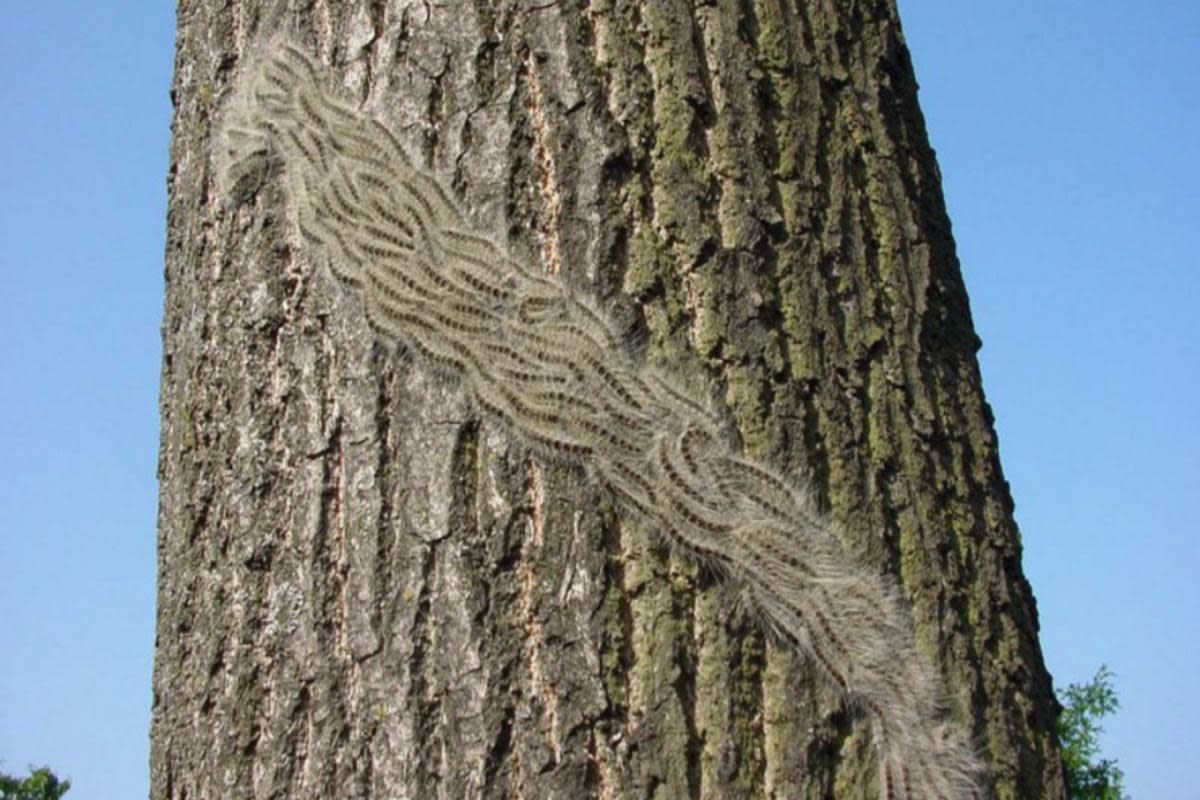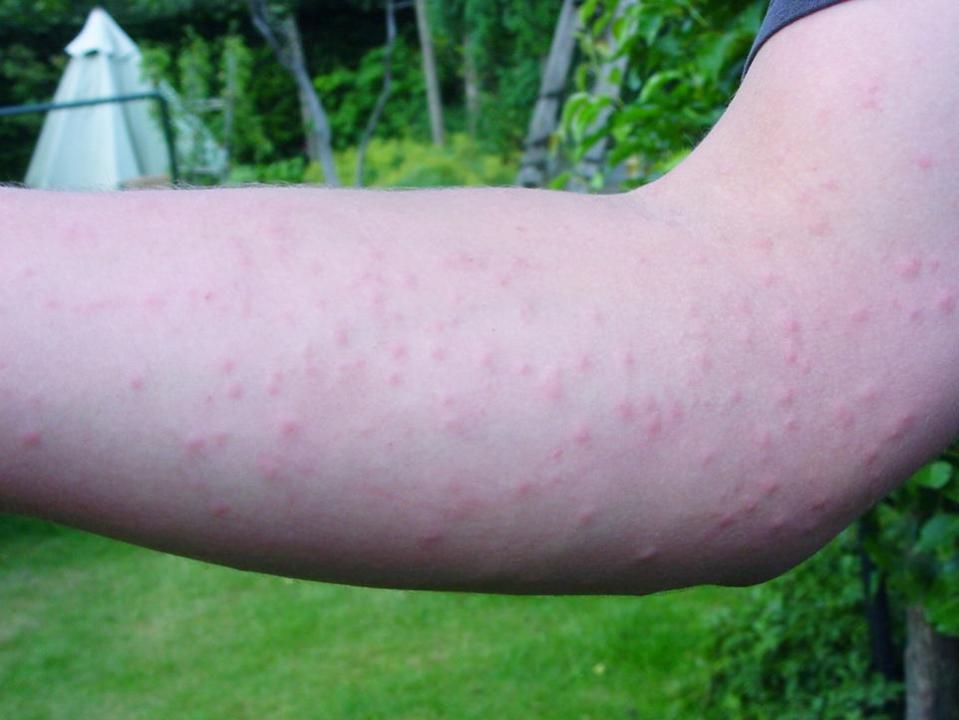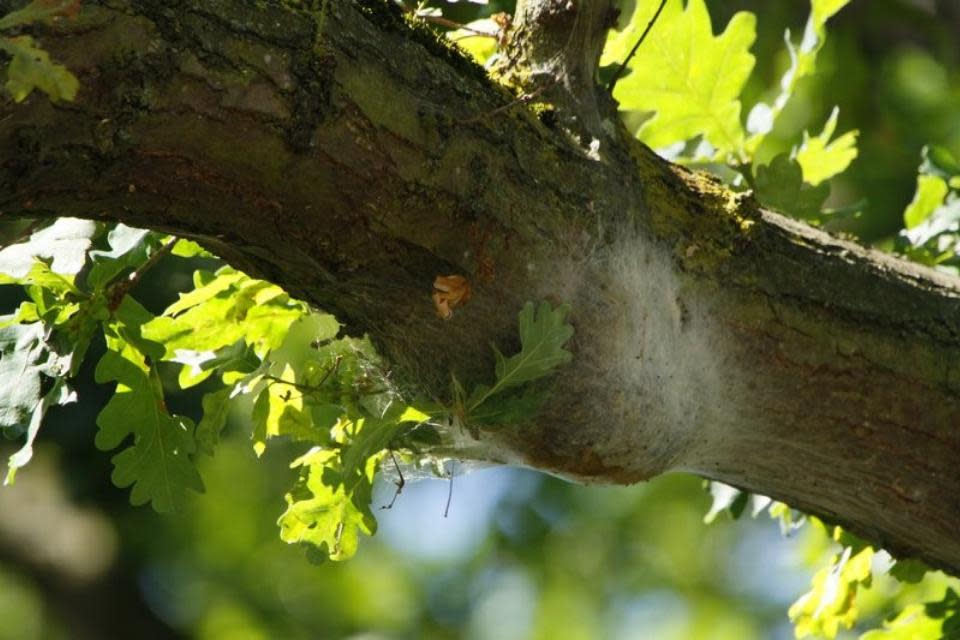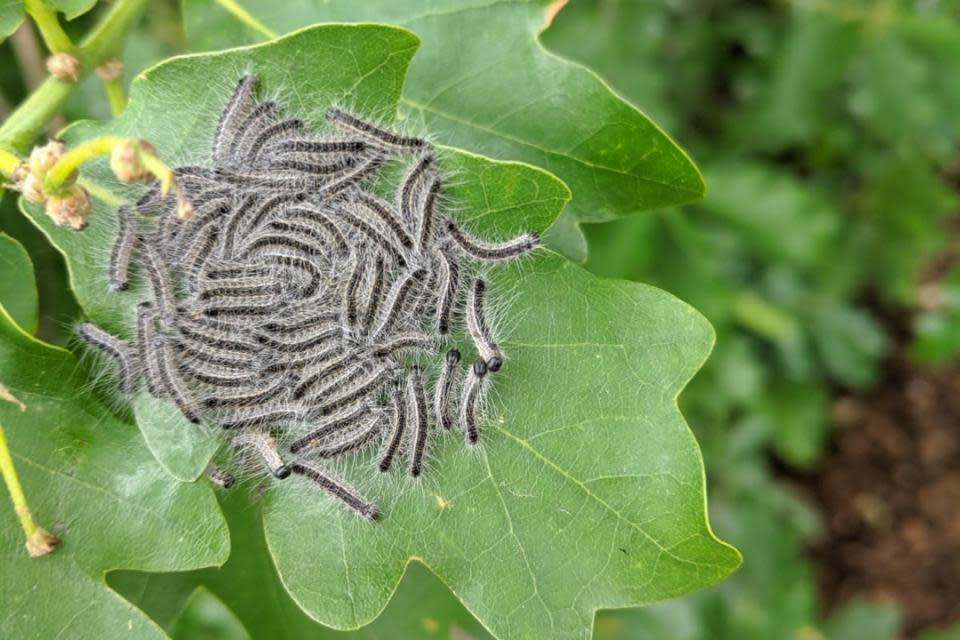People and pets warned not to touch harmful tree pests

An invasive tree pest that can be harmful to people and pets has started to emerge.
The oak processionary moth was first identified in London in 2006 and has since spread to other parts of the UK.
The caterpillars and their nests contain hairs that can cause itchy skin rashes and irritations to the eyes and throat, including conjunctivitis.

A skin rash caused by the oak processionary moth (Image: Forestry Commission/ Henry Kuppen)
Andrew Hoppit, OPM Project Manager for the Forestry Commission, said: "It’s important that those living in affected areas understand the health risks so that they can be vigilant when enjoying outdoor spaces."
The greatest risk period for coming into contact with the insect is between June and August when the caterpillars emerge to feed before turning into adult moths.
James Symonds, a warden for Norfolk Wildlife Trust, said: "At this time of year, the moths produce larvae that live in large communal webs, which you may see in trees and hedges found in urban areas, gardens and across the wider countryside.

An oak processionary moth nest (Image: Forestry Commission/ Henry Kuppen)
"The larvae release small hairs when touched, to defend themselves from predators, so if they are touched by us humans, the hairs can cause skin irritation and present a risk if inhaled."
Oak processionary moths are originally a Southern European species and used to be a rare migrant to the UK but are now more of a common occurrence due to the warming climate.

Oak processionary moth caterpillars (Image: Forestry Commission)The caterpillars feed on the leaves of oak trees, making them more vulnerable to environmental stresses and negatively impacting their growth.
If you think you may have touched or been exposed to oak processionary moths or caterpillars and have signs of a reaction, you should visit a pharmacist, contact your GP or call NHS Direct on 111.
If your pet has a reaction, you should consult a vet.

 Yahoo News
Yahoo News 
